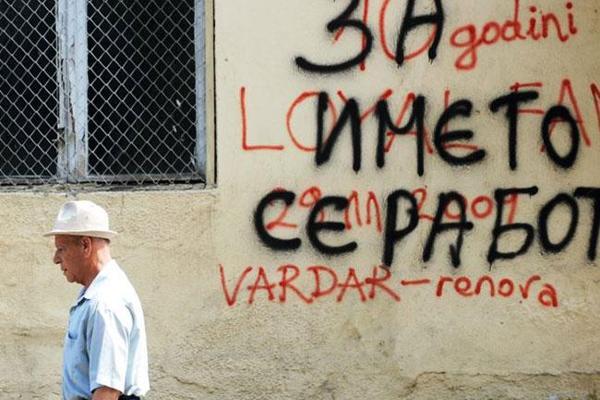Greece, Macedonia in new UN bid to solve name dispute
UNITED NATIONS - Agence France-Presse


Greece and Macedonia return to the United Nations on Jan. 17 seeking to end a dispute that has raged for 27 years over the former Yugoslav republic’s name.
Greece’s objections to the use of the name Macedonia since the Balkan country’s independence in 1991 has hampered Skopje’s bid to join the European Union and NATO.
U.N. envoy Matthew Nimetz decided to sit down with diplomats from the two countries at U.N. headquarters after their governments showed a new willingness to end the row.
“I think the people in both countries are maybe ready to hear some solutions that are consistent with national interests but also have some element of compromise that would resolve the problem,” the U.N. envoy said in an interview to Greek state broadcaster ERT on Jan. 15.
Nimetz, an American who has been trying to end the name dispute since 1994, said he saw some “positive momentum” while U.N. sources did not rule out a breakthrough at the meeting.
Greece maintains that the use of Macedonia suggests that Skopje has territorial claims to its own Macedonia -- a northern region that boasts the port cities of Thessaloniki and Kavala.
Macedonia is known as the Former Yugoslav Republic of Macedonia (FYROM) at the United Nations, but the Security Council acknowledged when it agreed to UN membership that this was a provisional name.
It has also been admitted to the World Bank and the International Monetary Fund under that name.Some of the solutions floated include using the name New Macedonia or Northern Macedonia, but Greek nationalists argue that there should be no reference to Macedonia at all.
Asked about prospects for the talks, U.N. spokesman Stephane Dujarric sounded a cautious note.
“These are discussions that have been going on for quite a long time. They’re very delicate discussions,” he said.
“Let’s wait to see what happens.”
Macedonian Prime Minister Zoran Zaev said this month that he believed a solution could be found by July, while his Greek counterpart Alexis Tsipras has said the issue should be settled this year.
Tsipras this week pushed back against the influential Greek Orthodox Church after it said any compromise with Skopje should not include the use of “Macedonia.”A compromise on the name is expected to be put to a referendum or presented to the parliaments for endorsement, which could stoke nationalist fervor.
